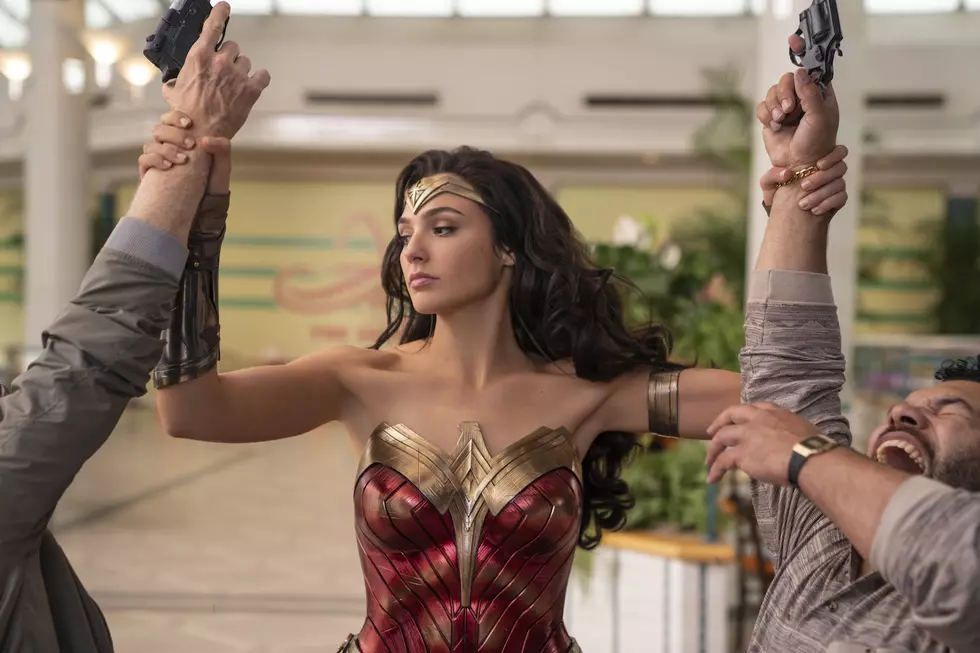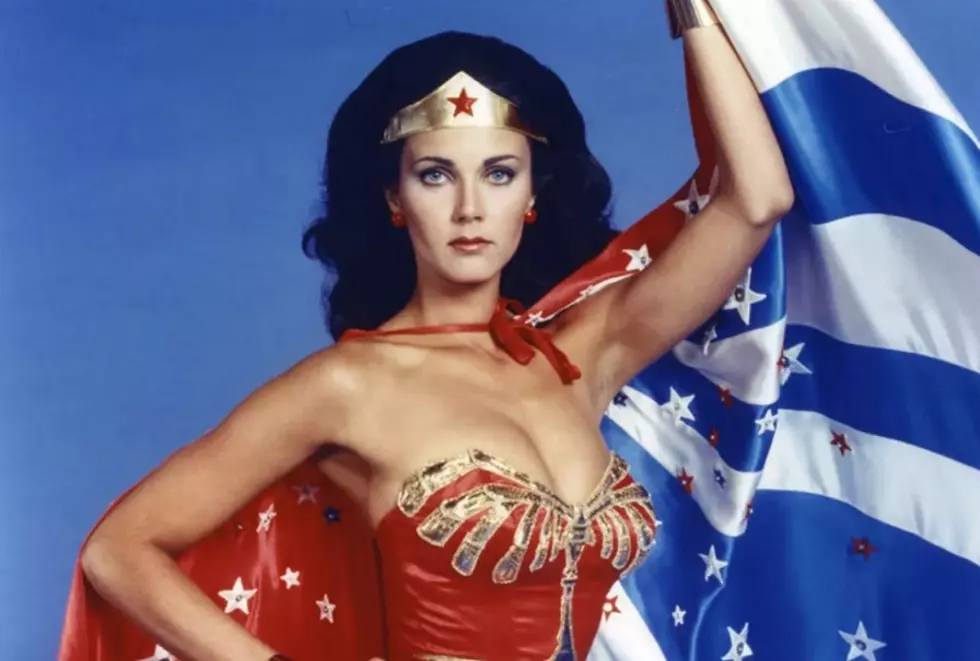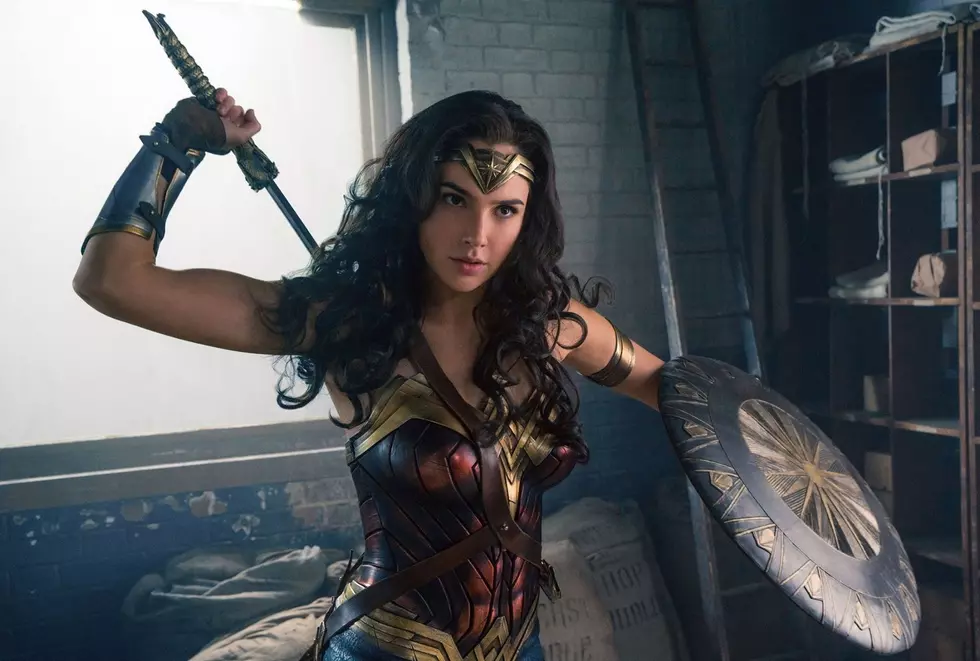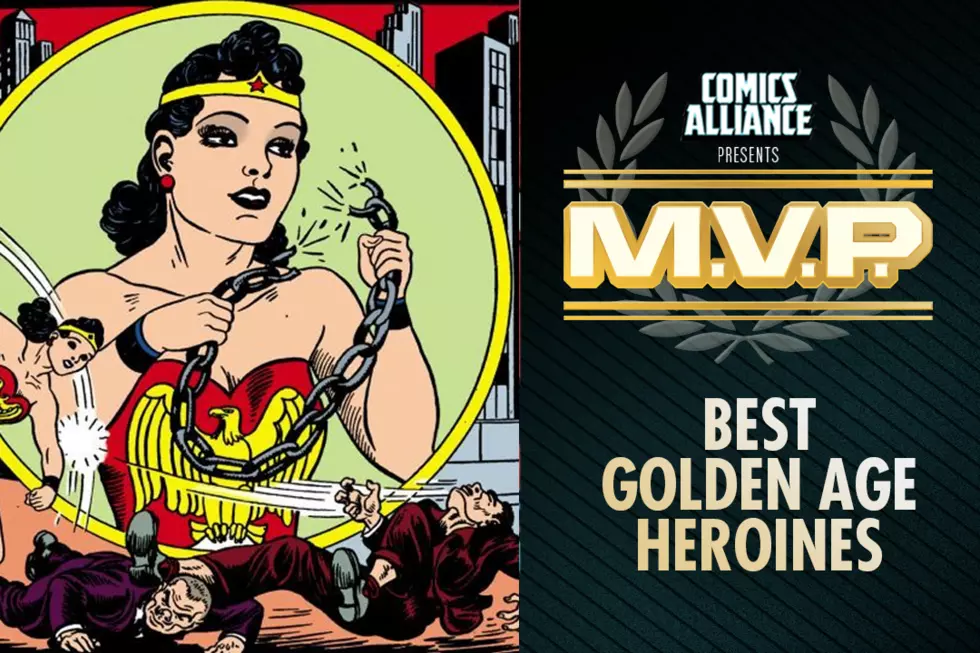![Wondering About Wonder Woman? Dan DiDio Explains the Costume Change [Interview]](http://townsquare.media/site/622/files/2010/06/dan-didio-wonder-woman.jpg?w=980&q=75)
Wondering About Wonder Woman? Dan DiDio Explains the Costume Change [Interview]
As the news of the new Wonder Woman costume and origin spreads across the comics world and the mainstream media, the reactions -- which have ranged from praise to condemnation -- continue to roll in. Even famed Wonder Woman actress Lynda Carter has offered her two cents, saying that "it will take time for people to get over not seeing a lot of leg... [but] I think it's going to be very sexy and it's new and I love the little cap sleeve. You know, she's a hip girl."
One of the most notable quotes so far came from DC Co-Publisher Jim Lee at ABC News, where he explained his thinking on the redesign: "If you or I were wearing the Wonder Woman costume, we'd be very aware we were wearing it, you know, essentially a swimsuit, fighting crime. So we created a costume that is essentially more functional, more protective." It's a surprising nod towards valuing the perspective of a female character over the visual cheesecake she can be used to create -- something we'd like to hear more of in superhero comics.
When we asked "Wonder Woman" writer J. Michael Straczynski what made now the right time to make these kinds of changes in a DC icon, he replied that the DC Co-Publishers were the ones who had taken on the charge. So we went to the man himself, Co-Publisher Dan DiDio, for more answers about why the Wonder Woman changes happened now, whether he thinks more superheroines should have functional costumes, and how long these changes will last within the DCU.

ComicsAlliance: Several creators who worked on Wonder Woman had talked about wanting to change her costume before; what made now the right time to make a big shift with the character?
Dan DiDio: Well, a lot of what we have going on right now with the newly formed DC Entertainment is looking for ways to expand the brand and the reach of our characters. We're looking at everyone very closely and the good part about it is that we're trying to look to the future as objectively as possible. In regards to Wonder Woman, we feel that this is a character who is one of our premier superheroes. She's been around since the '40s and is one of the most recognizable character names out there, and we wanted to do a story and something exciting with the character that would draw that level of attention to it and increase the prominence of the character.CA: Are there any concerns that changing the costume might change the recognizability of the character to a mainstream audience?
DD: Of course there are. Any time you change something like that, there's a lot of discussion that takes place, and a lot of people involved in that discussion. One of the things we tried to do with the costume -- the costume serves two purposes, really. It serves a purpose in regards to the story that's being told by Joe Straczynski, and it's essential to that story. It had to be changed in order for the story to work. But more importantly, we really wanted to update the character in terms of how we present her, but we also wanted to keep a lot of the key iconography that a lot of people recognize about Wonder Woman so it doesn't feel so far from removed from what they perceive her to be.
CA: What about Joe Straczynski's story made the costume change essential?
DD: The goal -- the character finds that everything she's known has either been forgotten or lost. She's being hunted and she needs to blend into society, mix with people. That's one of the reasons we had to change the costume, so that she wouldn't be standing out in a crowd, so to speak, [than] if she was walking around in the more traditional Wonder Woman wear. Things like the jacket have been added in order to cover up the brighter-clad aspects of the costume and make it work better, but the good thing about it is that you feel that it captures a lot of what makes Wonder Woman great. The one thing that will shine through and through is the personality and the drive and the attitude of the character. That's the one thing people will recognize and hopefully gravitate towards.

CA: You mentioned wanted her to be able to blend in with people on the street, and in her new history she'll have been raised in America as well. Did you want to make her seem more relatable to an average person, in contrast to being raised as royalty on a distant, isolated island?
DD: There are a lot of twists and turns in the story that we told. The perception that things have changed, I think, is one of the driving storylines that'll take us through the next year of Woman Woman's storytelling.
CA: One of the most interesting things to me about the change in her history is the death of her mother during her childhood, which makes her an orphan just like Superman and Batman. Was there an intentional decision to create that kind of shared theme within that trinity of characters?
DD: I don't think it's more intentional -- in this particular case I think it works to help drive and motivation a lot of the action and events that'll be taking place across the story.
CA: Obviously the biggest change in the costume is the addition of the pants, which brings her a lot closer to most male heroes in terms of how much skin she's showing. What message did you want to send by giving her a less revealing costume?
DD: It's an interesting question. The pants are really intentional for the actual story itself, again -- the blending in aspect. I think it works very nicely for the overall look of the costume. I don't [want to] say we're out there trying to bring a level of conformity in regards to how our characters act and behave. We actually put pants on the Martian Manhunter too, just recently. The bare leg look aspect was something that was unique when those characters were designed, and right now we're looking at designs as if we were designing the characters for today's audience.
CA: Do you think that more female superheroes should have costumes that focus on functionality?
DD: That was part of the discussion when we designed Batwoman. There was a lot of discussion of functionality. I think it also depends on how much of the fantasy aspect we're working into the storytelling. One of the stories that Joe was trying to do here -- it deals with the gods and this wide scope of story but it is [a] very grounded, very street-level sense of storytelling, and I think... the costume reflects that style of story. Realistically what I would say is that every character is different and every approach is different. For us, we can't look at one size fits all because we have so many characters and we try to appeal to as wide an audience as possible. Secondly and most importantly, all these characters play against each other and they're all different personalities and different attitudes. So they should all dress and act differently. We feel that this look really matches the style and tone of the story, and the attitude that should be carried in the series from this point on.

CA: What kind of reaction have you seen to the announcement about Wonder Woman so far? Have you noticed a difference between the mainstream reaction and the DC Comics fan reaction?
DD: The DC fan reaction is extraordinarily passionate and extraordinarily invested in the character. So when that changes you expect that you'll get several levels of reaction to it. For the people on the outside, they might be much more used to the more traditional aspects of the character. What we're hoping in both cases, both with the fans and the people who are just casually involved in understanding who Wonder Woman is, is that we can bring them into the story and the comic and give them a chance to read it before really reacting and making a full judgment.
CA: One question I've heard from a number of fans is how this change is going to affect the larger DC continuity. What will the change in Wonder Woman's history mean for related characters like, like Donna Troy and Wonder Girl?
DD: One of the things we're doing at the start is that we really want to establish how this change affects Wonder Woman, and then ultimately as the story unfolds it's going to affect the characters that are closest to her and then the rest of the DC Universe.
CA: How permanent are these changes -- particularly the changes in Wonder Woman's history -- going to be within the context of DC Universe?
DD: What you're asking is an extraordinarily important story point, and it's one of these things that gets peeled apart and put back together again. It's all part of the existing story. If you see any changes take place where it looks like we're going back to where we were, it's not because we're reacting or running away from what we did -- quite the opposite. It's all building to something that we feel embracing her full history and who she is as a character, and again, takes the new ideas and concepts and moves them forward.
More From ComicsAlliance









